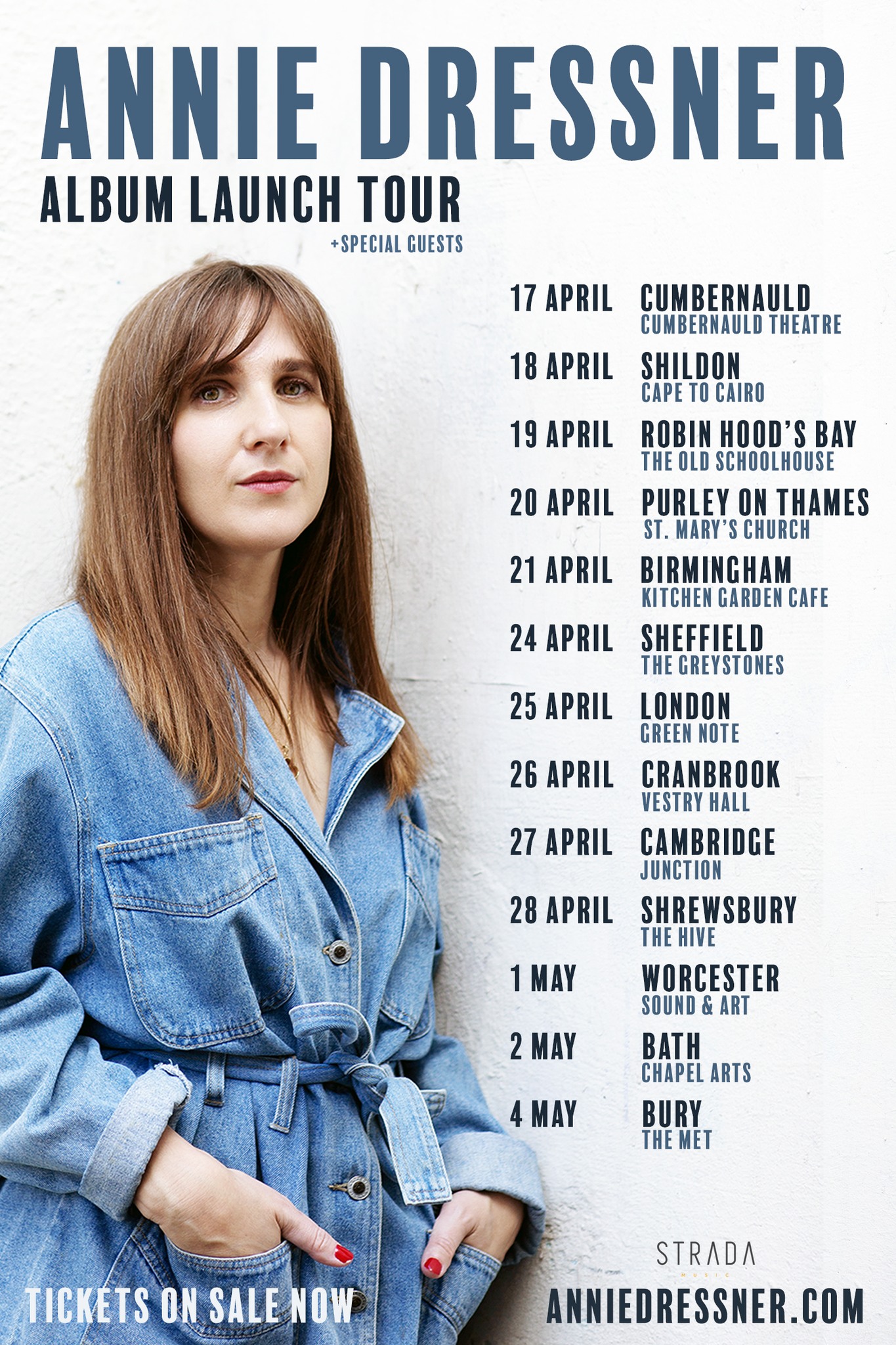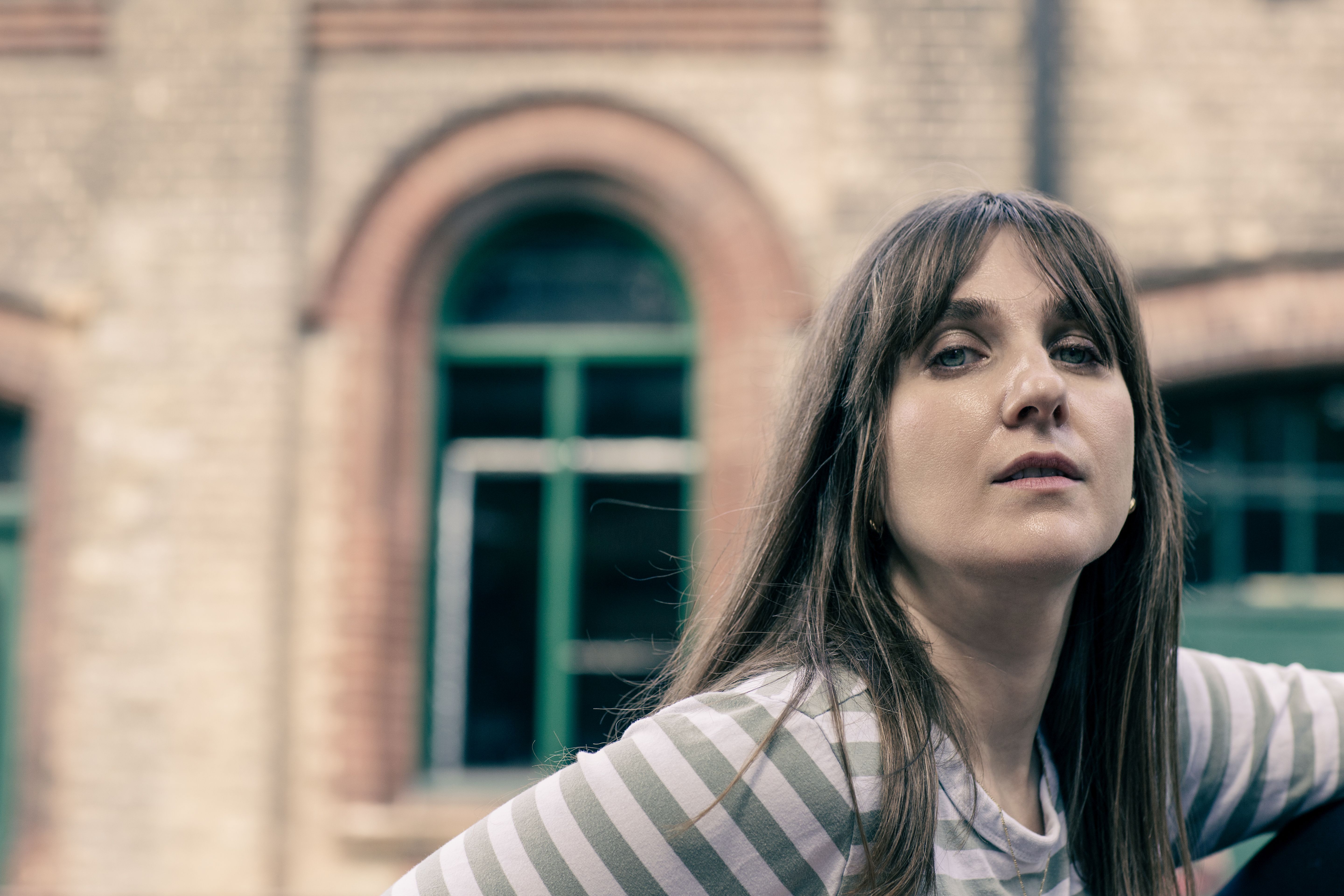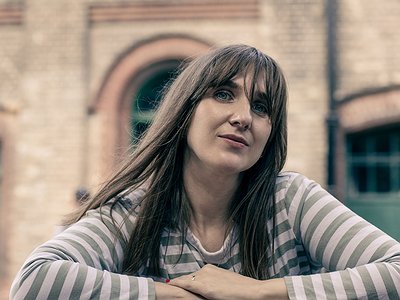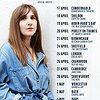Name: Annie Dressner
Occupation: Singer, songwriter, photographer
Nationality: American, UK-based
Current Release: Annie Dressner's new single "18 Years" is out via Dharma. Buy tickets for her 2024 UK tour here.
Recommendations: Degas: L'Absinthe; Ben Kweller: Falling
If you enjoyed this Annie Dressner interview and would like to stay up to date with her music, visit her official homepage. She is also on Instagram, Facebook, Soundcloud, and twitter.
Where does the impulse to create something come from for you? What role do often-quoted sources of inspiration like dreams, other forms of art, personal relationships, politics etc play?
Creativity comes at the weirdest times. Sometimes I just feel a need to write a song. It cannot be forced. That's not to say that I cannot sit down and write a song, it just might not have the same honesty.
Not all of my songs are autobiographical, but many are. I write from my own experiences, often to try to work through them to figure out how I actually feel. Songwriting for me helps me process and express myself in the most honest way that I can. The music and the lyrics often come out together, like they belong together. When I've written songs with the music or the lyrics first, it is harder for me to find the best way for them to intertwine.
I have also written songs from News Articles, like my songs 'Morning' and 'Numbers' off my second album Broken Into Pieces.
For you to get started, do there need to be concrete ideas – or what some have called a 'visualisation' of the finished work? What does the balance between planning and chance look like for you?
Not at all. I just sometimes have an idea for a hook or a certain word and I build it out from there.
Planning does not work for me when I'm being creative - it becomes an impairment.
Is there a preparation phase for your process? Do you require your tools to be laid out in a particular way, for example, do you need to do 'research' or create 'early versions'?
When I'm writing a song, I record as I'm singing and playing and I am usually doing this on my bed with my laptop and my phone. I then type the words in a document.
Once I have the first 'draft' or first idea, I work through it until I feel it is complete.
Do you have certain rituals to get you into the right mindset for creating? What role do certain foods or stimulants like coffee, lighting, scents, exercise or reading poetry play?
No, not really. It's driven by an urge to write or by an emotion and a need to express something in a very specific way - a very honest way - through song.
What do you start with? And, to quote a question by the great Bruce Duffie: When you come up with a musical idea, have you created the idea or have you discovered the idea?
Usually they come out together. My song 'Pretend' from my third record Coffee At The Corner Bar came out separately.
I wrote the lyrics and sent them to a few friends to see if they would be interested in co-writing, and whilst they said they were, nothing came of it, so I went and wrote the music afterwards. I really love that song, and it was also much harder for me to write that way, but it worked out in the end!
I think that most of the time I have discovered the idea. I learn a lot about my thoughts when I write songs. I don't feel as inhibited as I would, for example, in a conversation. I write on my own and feel free to express any and all thoughts.
Songs are an artistic expression. Not everything can be taken literally and there is room to play.
When do the lyrics enter the picture? Where do they come from? Do lyrics need to grow together with the music or can they emerge from a place of their own?
Normally at the same time as I pick up my guitar and strum a chord.
Sometimes there are no lyrics, but there are vowel sounds that come out or just one word that I like the sound of it with the chord or melody that is at play.
Annie Dressner Interview Image by Richard Ecclestone
What makes lyrics good in your opinion? What are your own ambitions and challenges in this regard?
I think that is wholly dependent on the song. I think specific yet relatable is a strong combination. Specificity makes things feel real and tangible but lyrics too specific can possibly feel too intrusive.
I try to write songs that are honest. I write songs for myself. I write songs for the sake of the songs that want to be written. But I comb through them to try to make sure that anything too pointed or too harsh gets toned down to something that people would still relate to and want to listen to.
I don't want to upset the listener.
Many writers have claimed that as soon as they enter into the process, certain aspects of the narrative are out of their hands. Do you like to keep strict control or is there a sense of following things where they lead you?
Not strict here. Definitely just going with the flow and hoping in the end I have a song that I like.
Often, while writing, new ideas and alternative roads will open themselves up, pulling and pushing the creator in a different direction. Does this happen to you, too, and how do you deal with it? What do you do with these ideas?
Go with the flow.
There are many descriptions of the creative state. How would you describe it for you personally? Is there an element of spirituality to what you do?
Therapeutic.
When you're in the studio to record a piece, how important is the actual performance and the moment of performing the song still in an age where so much can be “done and fixed in post?“
The actual performance is extremely important, especially the vocals.
On my upcoming album (out in Spring 2024) I recorded all of the vocals on my own and it took me about 30-40 hours to do so. I think that it makes a big difference to how the song might be digested by a listener. I try to sing with intention and meaning the words I am signing - that cannot be fixed in post. I also do my best to sing as well as I possibly can.
Of course so much can be done and fixed in post, but in my opinion, not the actual performance.
Annie Dressner Interview Image by Richard Ecclestone
Once a piece is finished, how important is it for you to let it lie and evaluate it later on? How much improvement and refinement do you personally allow until you're satisfied with a piece? What does this process look like in practise?
Mostly when I know a song is done, it's done. If I cannot finish a song it could be hours, days, weeks, months or years ... and eventually the good songs get finished.
I currently have song ideas that I like, some complete - others just a chorus. But again, usually the best songs of mine come out nearly complete -- but that doesn't happen every day.
Even recording a solo song is usually a collaborative process. Tell me about the importance of trust between the participants, personal relationships between musicians and engineers and the freedom to perform and try things – rather than gear, technique or “chops” - for creating a great song.
It's really important to be comfortable whilst working on a song - and you need to be sure that everyone can be honest with their opinions and that there is trust. It's also important as the artist to not compromise on things you really do not like and that you have it how you want it. It's good to find people who you feel understand the music.
The last two records that I have recorded have been produced at home with my husband (who is also a singer-songwriter) Paul Goodwin. As mentioned earlier, I recorded the vocals on my own for the latest album, and I preferred that. I had time and space to make them sound exactly as I wanted them to without the pressure of wasting anyone's time or taking too long or feeling rushed.
What's your take on the role and importance of production, including mixing and mastering for you personally? In terms of what they contribute to a song, what is the balance between the composition and the arrangement (performance)?
Similar to the performance, I think that the production can change the entire feel of the song. I think it's vitally important to try to get the production how you want the song and vibe to feel and sound.
The composition and the song itself are separate. The song needs to be able to stand on its own. The production should enhance that song and not detract from it. The mix and the master is also super important to get right.
After finishing a piece or album and releasing something into the world, there can be a sense of emptiness. Can you relate to this – and how do you return to the state of creativity after experiencing it?
This is an interesting question to me as that is not something I have ever experienced. I feel excited and happy to release my music into the world for people to hear.
I think I am constantly in an off-and-on creative state, so I am never doing one thing or the other.
Music is a language, but like any language, it can lead to misunderstandings. In which way has your own work – or perhaps the work of artists you like or admire - been misunderstood? How do you deal with this?
I think you just need to believe in your work and not worry about being misunderstood. To quote the single "I've Always Been Like This" that I put out last year "… I always feel stupid and misunderstood."
That song is my most popular one to-date on Spotify. It's also possibly my most revealing song about how I actually feel and I had never expressed it aloud before.
After releasing that song inot the world, it made me feel more understood and less alone as it seems to resonate with audiences.
Creativity can reach many different corners of our lives. Do you personally feel as though writing a piece of music is inherently different from something like making a great cup of coffee? What do you express through music that you couldn't or wouldn't in more 'mundane' tasks?
I can express how I feel in a very honest and hopefully somewhat meaningful way.







